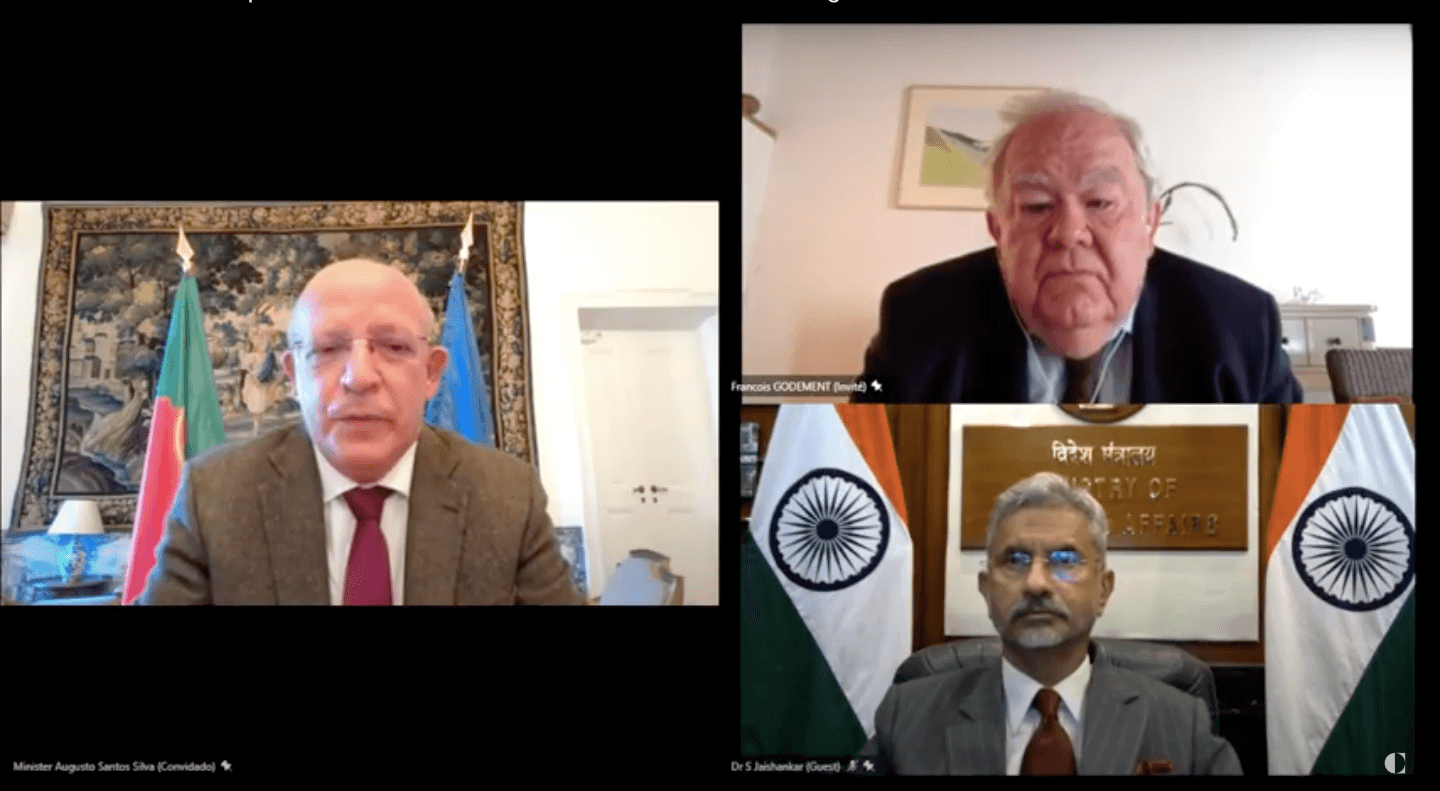On Monday, Carnegie India hosted a virtual discussion between Indian External Affairs Minister S. Jaishankar and his Portuguese counterpart Augusto Santos Silva to discuss the future of India’s relationship with the European Union (EU). This comes as Portugal prepares for its presidency of the bloc, which will start in January 2021 and end in June 2021.
In his opening statement, Jaishankar highlighted the importance of the timing of the event, which occurs as India is stepping up its diplomatic engagement with the EU through visits by Indian premier Narendra Modi and Jaishankar himself. He also applauded the two sides’ collaboration during the COVID-19 pandemic.
While speaking of a flourishing friendship, he recognised the EU as a natural partner of India in terms of “resources, technology, and best practices.” He urged the bloc and its leaders to appreciate India’s focus on “deep reform and profound transformation.” He said, “On their part, the Europeans need to appreciate the scale of this change and the opportunities that emerge from it. Whether it is access to electricity or drinking water, financial inclusion or low-cost housing, we are talking of hundreds of millions being directly impacted in a short time frame.” He also highlighted Prime Minister Narendra Modi’s call for a new global index at the G20 summit held over the weekend in Riyadh, which focussed on “technology, talent, transparency, and trusteeship.”
Similarly, Silva, agreeing with Jaishankar’s call for a stronger friendship between the two sides, highlighted four reasons for the importance of a partnership between the EU and India. The first, he said, was that India and the EU represent the largest “democratic spaces” in the world, which he believed to be an objective ground for the “reinforcement of their relationship.” Second, he believed that the two sides had already been strategic partners since 2004, which required engagement through concrete measures and conversations. Thirdly, he highlighted the need for a geopolitical balance, because of which he recognised the importance of bolstering relations with India while it continues to do so with other global powers like China, the United States (US), and Russia. Lastly, he acknowledged the importance of “human resources, skills and ability, trade and investment, technology and technology transfer,” which he believed to highlight the economic dimension of their relationship.
One of the key focuses of their discussion was recognising the importance of multilateralism while acknowledging the need for reform. While not specifically calling out China and the US, Jaishankar said that the undermining of institutions of the United Nations (UN) and the World Trade Organisation (WTO) has led to several obstacles, specifically in the handling of the COVID-19 pandemic. While admitting that both the institutions needed major reforms, he said that walking away or abandoning the institutions was not the solution.
Silva, on the other hand, did not shy away from directly mentioning the ongoing dispute between China and the US. However, he clarified that in this dispute, the EU was not a neutral party. While its differences with the US have bubbled up in the past few years, he highlighted that the powers belonged to the “same space.” However, he acknowledged the importance of opening up the EU and the North Atlantic to the world.
The two leaders also spoke of their interests in the Indo-Pacific region. Silva said that the EU’s interests were driven by the importance of the freedom of navigation and free movement in East Asia. He also highlighted that the bloc’s interest converged with that of India when it came to protecting human security by fighting against climate change. Lastly, he said that a balance needed to be struck for an inclusive “competitive connectivity strategy.” Jaishankar, agreeing with Silva, called for recognition of the Indo-Pacific as a landscape where several parties have their own interests. In light of this, he celebrated the efforts made by France, Germany, and the Netherlands to reinstate a rules-based order in the region.
This meet comes as India continues to negotiate a favourable Free Trade Agreement (FTA) with the European Union. Last week, S. Jaishankar said, “I recognise that an FTA with Europe is not an easy negotiation. It the world, it must be the most difficult negotiation because it’s a very high standard FTA.” Acknowledging this, along with the importance of the European market, India has been convening for bilateral discussions with several European countries. Last week, Narendra Modi and his counterpart from Luxembourg, Xavier Bettel, held their first “stand-alone summit” in 20 years. India has also held bilateral summits with Denmark and Italy. On Friday, representatives from India and Sweden are scheduled to convene for a meeting co-hosted by the Indian Embassy at Sweden and the Sweden-India Business Council. According to the statement released by the organisers, the event “aims to deepen the collaboration between the governments of Sweden and India in the field of innovation through a strategic innovation partnership and is based on a mutual commitment to drive prosperity and address global challenges such as sustainable development, health-tech, etc.”
S. Jaishankar and Portuguese Counterpart Discuss India-EU Partnership
During the event, which was hosted by Carnegie India, the two leaders touched on several issues, including multilateralism and security in the Indo-Pacific.
November 24, 2020

SOURCE: YOUTUBE
